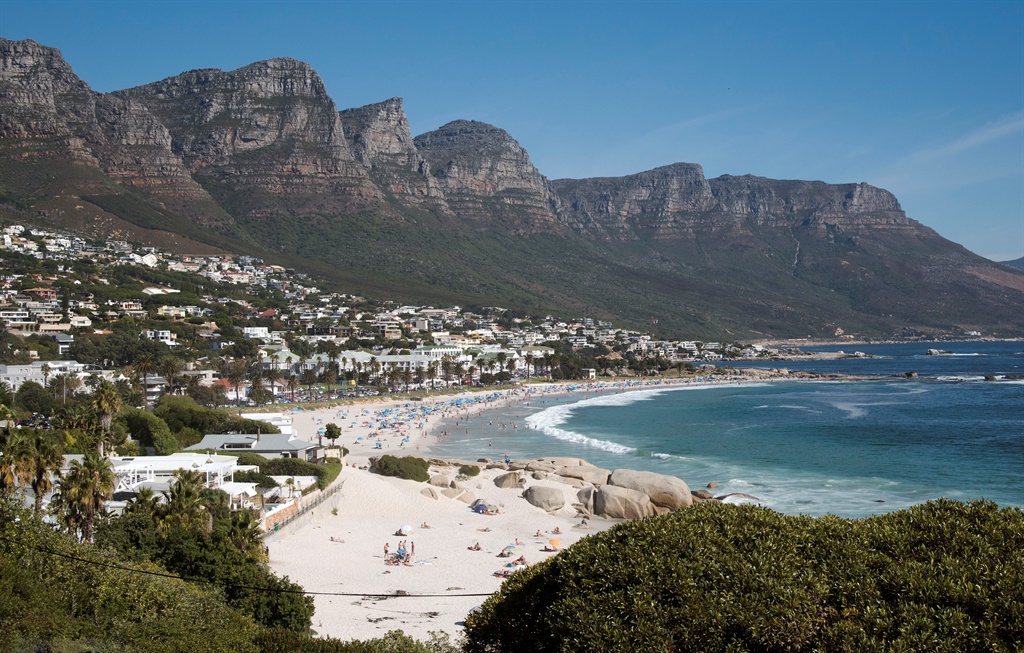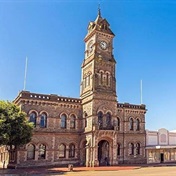
- ActionSA has threatened legal action over a permit allowing the City of Cape Town to pump wastewater into the ocean.
- Experts say the wastewater needs to be thoroughly treated before it is released into the ocean.
- Research released in December found the outfall is impacting a marine-protected area in Camps Bay.
ActionSA has threatened legal action to challenge the permit allowing the City of Cape Town to pump wastewater into the ocean.
While experts believe the objectors have a valid point, the City has said it would cost billions to implement an alternative to its three marine outfalls.
The party sounded the alarm over the approval of coastal waters discharge permits issued for the marine outfalls in Hout Bay, Camps Bay and Green Point.
ActionSA provincial chairperson Michelle Wasserman claimed that during a recent kayak trip to the Green Point sewage outfall, she found “islands of floating sewage, as well as sanitary pads, tampons and condoms”.
Wasserman said the organisation has appealed against the awarding of the permits.
She said ActionSA was lobbying for the Department of Forestry, Fisheries and the Environment (DFFE) to compel the City to establish “the infrastructure necessary to process the sewage so that all harmful elements, including chemicals, toxins and hormones, are removed before the remaining water is discharged into the sea”.
Wasserman said:
According to City’s acting Mayco member for Water and Sanitation Siseko Mbandezi, the 3mm screen through which all wastewater was passed prevented solid waste from being discharged into the ocean. He argued that the litter noticed by Wasserman could not have come from the outfall, as its “appearance is not consistent with preliminarily treated sewage”.
Mbandezi said: “No wastewater treatment plant removes chemicals and pharmaceuticals from the waste stream – this is a global challenge and is not unique or specific to the outfalls.”
The permit allows the release of screened sewage into the ocean at Green Point, Hout Bay and Camps Bay via pipes about 1.7km, 1.2km and 1km out to sea and about 32m, 35m and 28m deep, respectively.
READ | Cape Town to fork out R150k a month per generator to keep sewage pumps running during load shedding
He said the outfalls were “within the limits of marine environmental standards as determined by current pollution guidelines”.
“This process is monitored very closely to ensure high levels of compliance set by DFFE. Coastal outfalls are a global practice which is guided by local engineering and pollution legislation and guidelines. In some cases, spatial and environmental constraints inhibit wastewater treatment works at small coastal enclaves,” he said.
In a statement, the DFFE said it was aware of ActionSA’s intent to appeal against the coastal waters discharge permits but that coastal discharge of wastewater into the ocean was “a common practice in coastal cities around the world” and was prohibited under South Africa legislation.
DFFE said the City had commissioned a study to assess the impact of the effluent on the receiving environment.
The findings “indicated that there is no immediate ecological disaster or major risks to human health forthcoming as a result of the effluent discharged through the Cape Town outfalls”, the DFFE said.
ALSO READ | Charges laid against top eThekwini officials over sewage spills at lagoons and beaches
“The department also considered alternative options during the decision-making process. However, no other feasible options are available currently. The City cannot cease the operations … as the municipality has a constitutional responsibility to deliver water and sanitation services to its citizens. In granting the permits, the department made it conditional that the City must investigate ways to improve the quality of the effluent.”
Dr Kevin Winter, head of the University of Cape Town's Future Water Institute, said there appeared to be a discrepancy between the scientific reports used by the City and DFFE and the academic research reports that had been compiled on the impact of the outfalls.
“They need to be consolidated since they do not use the same bioindicators and reach the same conclusions,” he said.
Winter referenced research published in December that found the outfalls impacted marine-protected areas in Camps Bay.
The study found different classes of emerging contaminants (ECs) present in sewage released into the marine environment via the Camps Bay marine outfall, in seawater and sediment and in marine invertebrates and plants.
The levels of contaminants found in marine invertebrates and plants in the marine-protected environment showed that the dilution of the sewage by the ocean “is not adequate”.
The report stated:
The research recommended improving the treatment of wastewater before releasing it into the ocean.
“Human exposure to these chemicals of emerging concerns through ingestion of seafood, contact, and accidental seawater ingestion is feasible,” the report found.
One of the report authors, Prof Leslie Petrik, said she fully supported ActionSA’s challenge.
“The City and DFFE are irresponsible in not addressing the faecal pollution of our marine environment,” she said.
ALSO READ | Cape Town warns of possible drought as dam levels fall, but it has a plan
“Coastal water discharge is a misnomer. We are talking about raw sewage being discharged through the marine outfalls. The City claims treatment, but the sewage has merely been passed through a 3mm sieve or is macerated at the various pump stations to the outfalls the City operates.”
Petrik added that there was “no actual treatment to disinfect the faecal matter in sewage”.
“Faeces and urine pass through 3mm sieves. So do unmetabolised or partially metabolised medications, as well as all bacteria and viruses, and other chemicals such as antibiotics,” she said.
Petrik said that the best practice would be to divert the sewage to a fully functional and capacitated land-based wastewater treatment works (WWTW) that has primary, secondary and tertiary treatment stages. This would allow for the removal of solids and nutrients and would destroy bacteria and degrade chemicals.
Winter added:
He said water should be treated on land before it was discharged into oceans and rivers.
“The ideal is to treat water to sufficient quality so that it can be used for multiple benefits. It means keeping as much water in the city as possible and where there is excess that can be used, to pump that high-quality treated water to catchments such as Berg River to support the agriculture industry,” he said.
Winter added that the City was under pressure to manage the “failure of many of its land-based WWTWs to discharge water that is compliant with norms and standards”.
Mbandezi said the City operated 26 wastewater treatment works that optimally treated sewage from properties before it was released as treated effluent into the ocean.
ALSO READ | How eThekwini Metro ignored steps to fix sewage crisis plaguing beaches and water sources
“In total, 95% of Cape Town’s wastewater is discharged from WWTWs, compared to 5% from the three outfalls. Given that outfalls are operating within legislated standards and guidelines and constitute a fraction of Cape Town’s wastewater, multibillion-rand upgrades to wastewater treatment works and the sewer network will have a far greater positive impact on inland and coastal water quality,” said Mbandezi.
He added that there were “major spatial, practical, and financial constraints to building multibillion-rand WWTW to also service the Green Point, Hout Bay and Camps Bay areas”.




 Publications
Publications
 Partners
Partners























